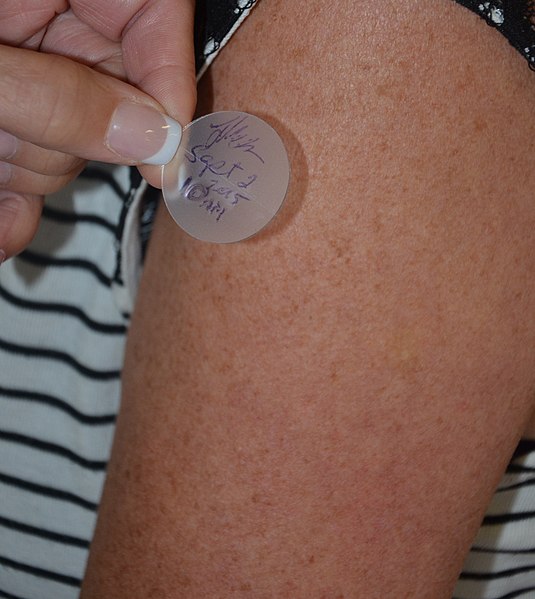Nasal administration, popularly known as snorting, is a route of administration in which drugs are insufflated through the nose. It can be a form of either topical administration or systemic administration, as the drugs thus locally delivered can go on to have either purely local or systemic effects ibuprofen or Tylenol for headaches along with pains such as severe toothaches. Nasal sprays are locally acting drugs such as decongestants for cold and allergy treatment, whose systemic effects are usually minimal. Examples of systemically active drugs available as nasal sprays are migraine drugs, rescue medications for overdose and seizure emergencies, hormone treatments, nicotine nasal spray, and nasal vaccines such as live attenuated influenza vaccine.
A medical professional applies nose drops.
Nasal septum perforation caused from cocaine abuse.
Lines of cocaine prepared for snorting
Ketamine prepared in a spiral for "snorting". a common technique for self-administration of some recreational drugs.
In pharmacology and toxicology, a route of administration is the way by which a drug, fluid, poison, or other substance is taken into the body.
Oral administration of a liquid.
A medical professional injects medication into a gastric tube.
A transdermal patch which delivers medication is applied to the skin. The patch is labelled with the time and date of administration as well as the administrator's initials.
A medical professional applies nose drops.







